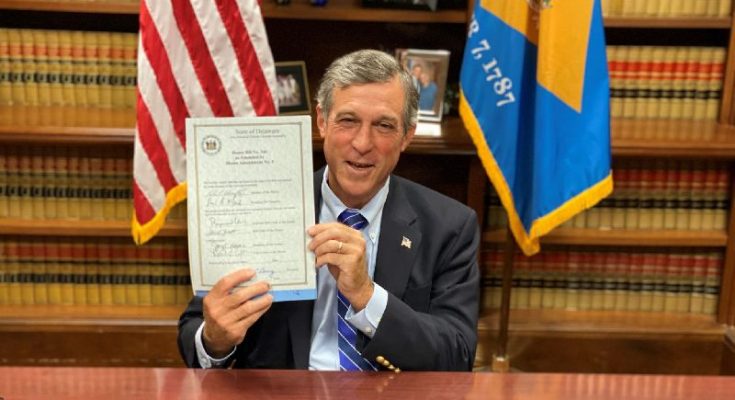In their ruling, released Thursday, the Delaware Supreme Court has ruled that Governor John Carney repeatedly violated the religious freedoms of two pastors and their congregations in 2020. This decision arose from a case involving COVID-related restrictions on religious services. The court upheld the appeal from the Court of Chancery and the Superior Court of Delaware, asserting that the Governor’s actions during the pandemic unlawfully restricted religious worship.
The case, submitted on May 22, 2024, and decided on August 1, 2024, involved appellants Pastor Alan Hines and Reverend David W. Landow, represented by Stephen J. Neuberger, Thomas S. Neuberger, and Thomas C. Crumplar. They argued that the Governor’s restrictions, though aimed at protecting public health, disproportionately affected their religious practices and violated their constitutional rights.
Governor Carney had issued a series of executive orders beginning in March 2020 to mitigate the spread of COVID-19, which included limitations on gatherings and specific mandates for “houses of worship.” These restrictions included capping attendance at religious services and encouraging remote worship, among other measures. The appellants contended that these orders infringed upon their rights to freely practice their religion, as protected by both the Delaware Constitution and the U.S. Constitution.
The Delaware Supreme Court recognized the essential nature of religious freedom and acknowledged the necessity of viewing restrictions on religious worship with skepticism. However, the court also noted the importance of public officials’ discretion in emergency conditions.
In its decision, the court recounted the timeline and modifications of the Governor’s orders, highlighting that all challenged restrictions had been lifted by June 2020. By then, the appellants sought injunctive relief against non-existent restrictions, leading to the dismissal of their initial action in the Court of Chancery due to lack of subject matter jurisdiction. When the case was transferred to the Superior Court, claims for declaratory judgment and damages were also dismissed on the grounds that the Governor was immune from suit for his discretionary actions taken in good faith during an emergency.
The court said that the appellants did not point to any binding precedent from the United States Supreme Court or the Third Circuit, or to a “robust consensus” in other courts addressing the particularized facts of this case. Instead, Appellants rely on cases generally addressing the scope of free exercise rights. But identifying generalized rules regarding the First Amendment and the free exercise of religion does not overcome qualified immunity because the purpose of the doctrine is to protect officials who make difficult decisions on the basis of developing facts.
The court continued by saying that a plaintiff’s burden under qualified immunity does not end when a constitutional violation is pinpointed; it rests on whether the official should have known that their actions violated a clearly established constitutional right. In hindsight, we can identify a possible constitutional violation arising from the Challenged Restrictions’ nonneutral treatment of Houses of Worship or of particular types of worship, but we cannot find that it was clearly established at the time the restrictions were in effect that these temporary, emergency limitations intended to shield human life were unconstitutional. Consequently, Appellants have not carried their burden to lift the shield of qualified immunity.
The court’s conclusion
Case law that has developed since the Challenged Restrictions were lifted supports the view that the restrictions violated Appellants’ rights. Well after the Challenged Restrictions were lifted, the United States Supreme Court issued its opinion in Roman Catholic Diocese of Brooklyn v. Cuomo, in which the Court held that a church and synagogue established that they would likely prevail in proving that occupancy limitations at public places of worship violated the Free Exercise Clause of the First Amendment. A future governor confronted with a future public-health emergency would have the benefit of that precedent, but it was not available at the time Appellee made the decisions at issue. Although singling out Houses of Worship for heightened restrictions was a probable constitutional violation under Cuomo, we affirm the Superior Court’s holding that at the time the Challenged Restrictions were adopted there was no “clearly established law” addressing these particularized facts.

